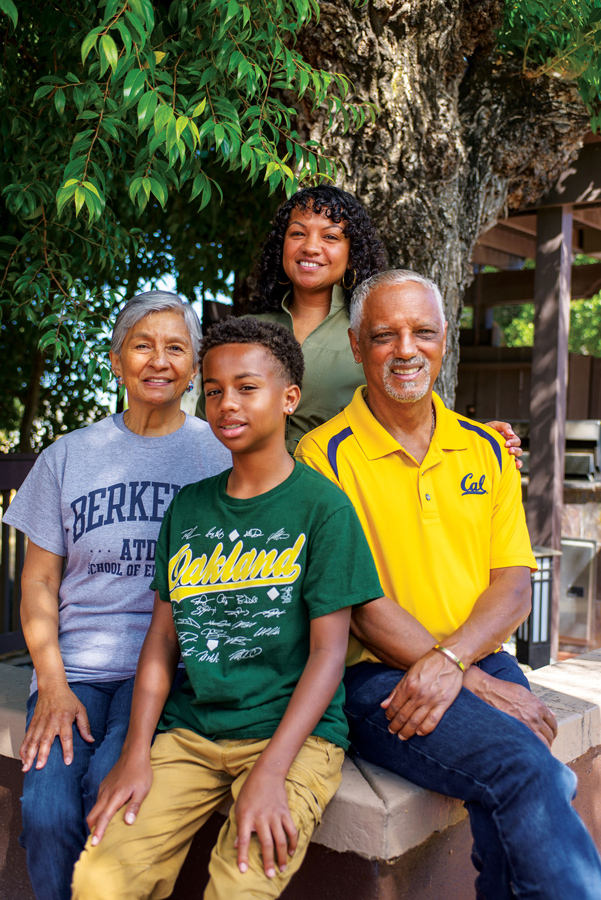
Vernard Lewis (right) and Lisa Kala (left) with their daughter Aikane Lewis and grandson Tahir.
Congratulations to Vernard Lewis, professor emerit of Cooperative Extension, on being named the 2024 Harvey Logan Lifetime Achievement Award recipient by the Pest Control Operators of California (PCOC). The award was presented to Lewis on June 21 during PCOC’s annual conference in Nevada.
“Vernard has been an unparalleled champion for our industry for decades,” Lee Whitmore, PCOC’s past president, said of Lewis’ contributions to the profession. “His research has been instrumental in protecting the consumer public by ensuring industry professionals communicate accurately about pest control technologies and processes. His collaboration and research have enhanced the effectiveness of various treatment technologies through meticulous yet fair evaluation, benefiting both professionals and consumers alike.”
Lewis graduated from UC Berkeley’s College of Natural Resources in 1975 with a BS in Agricultural Sciences and later returned to complete an MS (’79) and PhD (’89) in entomology. He worked as a pest management professional in San Quentin Prison while he pursued his advanced degrees, and later accepted a postdoctoral fellowship in the Department of Environmental Science, Policy and Management (ESPM). In 1991, Lewis became the first Black entomologist at UC Berkeley when he was hired as a professor of cooperative extension in ESPM.
As an internationally recognized expert on urban pests, Lewis has published about 150 papers and delivered more than 700 presentations on termites, bed bugs, and cockroaches. He is best known for his termite research, which largely occurred at the Richmond Field Station in a 400-square-foot structure designed to test alternative pest control methods. Despite retiring in 2017, Lewis remains professionally active and continues to support PCOC’s Termite Academy, which has been hosted at the Richmond Field Station since 2018.
Throughout his career, Lewis has served as a vocal advocate for the importance of diversity. He has dedicated a significant part of his career to making higher education more accessible to first-generation students and people of color. Lewis and his wife, Lisa Kala, support these efforts at Rausser College through the Lewis and Kala Diversity, Equity, and Inclusion Fund
